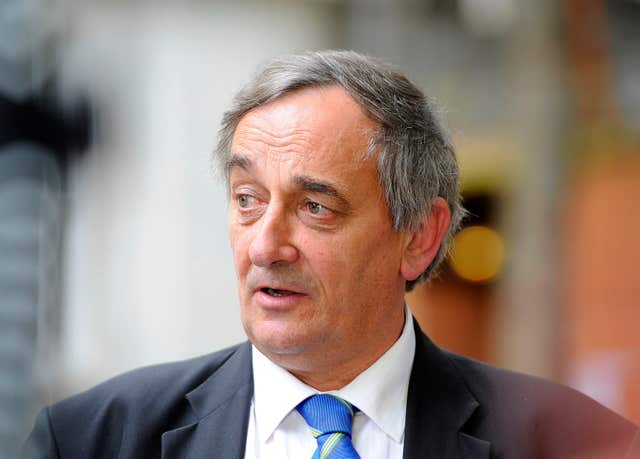
Farmers “must have frictionless trade with the EU” after Brexit, National Farmers’ Union president Meurig Raymond is warning.
He will also tell delegates and politicians, including Environment Secretary Michael Gove, at the NFU’s annual conference the UK should not let food and farming standards slip and be undermined by a bad trade deal outside the EU.
Those who advocate a “cheap food policy” should bear in mind the price that is paid in terms of standards, traceability of produce and shifting the environmental impact to other countries, he will warn.

The call comes after MPs on the Environment, Food and Rural Affairs (Efra) committee said the UK’s high environmental, food and animal welfare standards should not be sacrificed on the altar of cheap imports.
They also called for clarity for the £110 billion-a-year agriculture and food, for which the EU accounts for 60% of exports and 70% of imports.
Concerns have been raised that barriers to trade and free movement could hit the agricultural sector, while efforts to do trade deals with countries such as the US could see cheap imports of produce such as chlorinated chicken and hormone fed beef.
Mr Gove has pledged not to let environmental and animal welfare standards slip in a bid to secure new international trade deals, and has said subsidies will switch towards payments for public goods such as environmental protection.
The NFU has previously outlined a post-Brexit policy focusing on the environment, productivity and building resilience to volatility.
Mr Raymond will say: “We must have frictionless trade with the EU. Everything else, including the final shape of any domestic agricultural policy, is dependent on that.
“And of course, those who advocate a cheap food policy, of scouring the world for low cost food should bear in mind the price paid in traceability, in standards and in the off-shoring of environmental impact.
He will also warn: “And to deliver farming’s true potential for Britain we must have a trading environment that helps, not hinders.
“We must have a food supply chain which shares the risk equally – rather than piling all the risk onto the farmer.
“British farmers are extremely proud of the standards they adhere to – most of them linked to the Red Tractor, which ensures the very best in traceability.
“We mustn’t let those standards slip and be undermined by a bad trade deal during Brexit negotiations.”
With a growing population, he will say, it is unwise to depend on “whoever and wherever in the world to feed us”, and said thriving food businesses were needed to look after the countryside.
“Britain’s farms need access to the EU market, we need access to a reliable workforce and we need measures to help our food and farming industry be more productive.”


Comments: Our rules
We want our comments to be a lively and valuable part of our community - a place where readers can debate and engage with the most important local issues. The ability to comment on our stories is a privilege, not a right, however, and that privilege may be withdrawn if it is abused or misused.
Please report any comments that break our rules.
Read the rules here